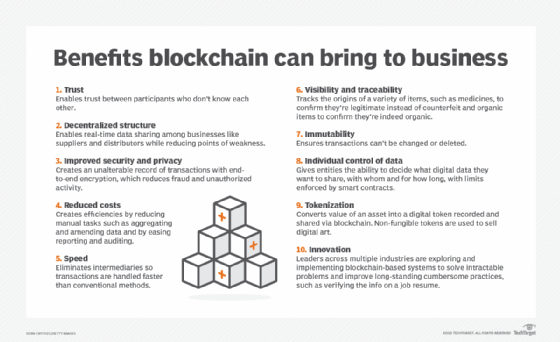
phive2015 - stock.adobe.com
Unilever pursues supply chain sustainability with blockchain
Unilever deploys blockchain-enabled GreenToken by SAP to help ensure the palm oil used in its products comes from responsible sources and doesn't contribute to rainforest loss.
Unilever, a consumer products giant, is hoping to improve its supply chain sustainability practices by implementing GreenToken by SAP, a startup that provides blockchain-based technology.
Unilever's focus for the technology is palm oil, which is derived from the fruit of the oil palm tree and is used in thousands of non-food consumer products, including soaps and shampoos. However, sustainability issues, most notably deforestation, are on the rise connected to the production of palm oil and its supply chain after the first mile.
 Andrew Wilcox
Andrew Wilcox
Most of Unilever's oil palm plantations are located in the Leuser rainforest in the Aceh province of Indonesia, one of two major areas of palm oil production. The rapid expansion of the palm oil industry has resulted in poor production standards and accelerated deforestation, according to Andrew Wilcox, senior manager of sustainable sourcing and digital programs at Unilever. The expansion of oil palm plantations has further led to land conflicts between plantation companies and local communities.
Unilever, which has been seeking ways to create a sustainable forest footprint, is now adding GreenToken's blockchain technology to provide transparency and traceability of its palm oil supply chain, improving the sustainability of palm oil production, according to the company. Unilever has used technology such as satellite imaging and AI to monitor deforestation and land conversion, while the GreenToken project is a new effort to specifically address supply chain issues.
Last fall, Unilever published a report on the environmental issues facing the palm oil industry and how it's addressing those issues. In it, the company stated that about 128,700 hectares (ha) of forests have been destroyed for palm oil expansion between 2016 and 2020. Further, 2,020,700 ha of forest and 201,700 ha of peat in Aceh are at risk of potential future conversion and clearing into oil palm.
Unilever, along with other consumer goods companies like PepsiCo, Procter & Gamble, Ferrero, Nissin Foods and Mars, face increased public pressure from non-governmental organizations such as the Rainforest Action Network (RAN) to disclose their rainforest footprints.
Companies like Unilever are also coming under increased scrutiny from governments, most notably by European countries that have adopted regulations. Likewise, the U.S. is also increasing its focus on sustainability, with proposed Securities and Exchange Commission rules that would require publicly traded companies to report on climate-related risks such as weather variability severe enough to affect business operations and financial conditions.

Complex supply chain and controversy
Supply chains for palm oil are long and complex, and the material can go through dozens of transformations as it moves from company to company from the time it's harvested until it ends up as soap or shampoo, Wilcox said.
Companies want to make sure that the palm oil they're sourcing comes from responsible sources, such as plantations that don't contribute to deforestation, he said. Palm fruit coming from a sustainably maintained planation looks the same and has the same chemical properties as fruit from deforested lands, but certifications from organizations like the Roundtable on Sustainable Palm Oil and the Palm Oil Innovation Group assure companies that the palm oil comes from a responsible source.
Indeed, Unilever faced pressure from RAN after publishing its 2021 forest footprint report. "RAN has exposed Unilever's connections to rogue actors destroying rainforests in the Leuser ecosystem for over five years," Maggie Martin, senior forest campaigner at RAN, said in a statement following Unilever's 2021 forest footprint report. "Unilever has a responsibility to address the harm caused to communities, forests and the climate through its decade-long sourcing of conflict palm oil from the region and prevent further deforestation and human rights violations across Aceh."
"Unilever is aware of the need to tackle these and other issues associated with palm oil, such as climate change, biodiversity loss and human rights issues," Wilcox said. "That's why we have made a commitment to sustainably source all the palm oil we use in our products."
One aspect of its strategy to meet that commitment is using technology such as GreenToken, which is helping Unilever track, verify and report in near-real-time the origins and journey that palm oil takes through the long and complex supply chain, he said.
 Nitin Jain
Nitin Jain
GreenToken is a blockchain-based supply chain traceability and chain-of-custody application that allows companies to record and track facts about the raw materials they use in products, according to Nitin Jain, co-founder and general manager of the startup. This can include information like where raw materials originate, specific production attributes and certifications.
GreenToken, which companies can access through a SaaS interface dashboard, provides the ability for producers to create a digital token of physical goods that can include multiple attributes, such as the original plantation and any certifications. It then uses blockchain technology to establish a chain of custody for the tokens that cannot be altered as the materials move through the supply chain, Jain said.
"You can have facts about commodity that say it's coming from a mature plantation with no deforestation," he said. "With blockchain, any entity can only sell so much of certified content that they are receiving, and there cannot be any double spending of the certificates or tokens."
A use case for supply chain transparency
Unilever has been using technology to further sustainability goals such as satellite images to track deforestation in the supply chain, said Marta Muñoz, technology for sustainability and social impact practice lead at IDC Europe.
 Marta Muñoz
Marta Muñoz
Blockchain is a good option for supply chain transparency, Muñoz said, and has been used successfully in areas like automotive and computer manufacturing to trace the origin of metals used and avoid conflict minerals.
"Supply chain transparency is becoming an increasingly important area for organizations around the world, but is particularly relevant to Europe," Muñoz said. "For example, Germany's Supply Chain Act, coming into effect in 2023, will force large public organizations to provide visibility of their supply chains in a digital and auditable format, and similar legislation is expected in other countries."
The key challenge of these projects is about how the insights get used, how the information is communicated to the ultimate suppliers and producers, and how companies like Unilever can work with suppliers to minimize the impact on deforestation while maintaining or improving their well-being and socioeconomic situation, she said.
"There are also challenges related to the use and management of the data collected," Muñoz said. "It needs to be secured, protected, aggregated to a certain extent, so the tech vendor becomes a very important partner."
If companies like Unilever use applications like GreenToken correctly, they can build stronger relations with suppliers where previously they had little visibility and no relationship, she said.
"Beyond that, it is also about building credibility and trust by enabling that end-to-end transparency," Muñoz said.
Jim O'Donnell is a TechTarget news writer who covers ERP and other enterprise applications for SearchSAP and SearchERP.






